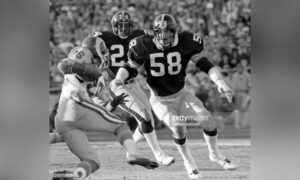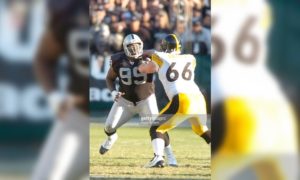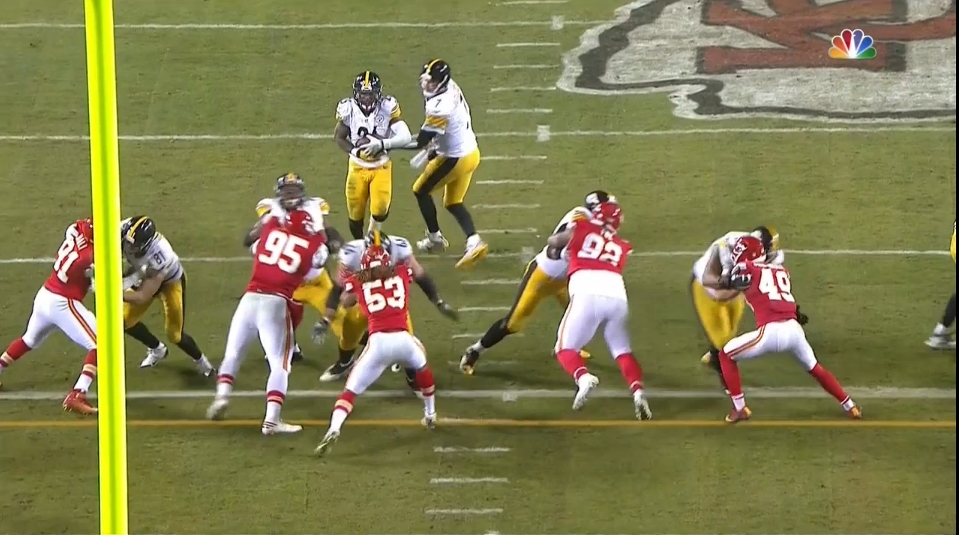A short while back, a case was brought against Northwestern University that in part argued that its football players should be considered employees of the university. A regional board ruled that the football players were indeed employees and that they have a right to form a union, which opens up the possibility of future litigation for student-athletes.
Ramogi Huma, founder and president of the National College Players Association, which helped bring the case to the board, was on The Colbert Report on Tuesday night to discuss the topic and its related issues. Below is a brief recap of the discussion between Huma and Stephen Colbert, the satirical pundit.
The first thing that Huma wanted to make clear is the NCPA’s position on financial compensation. In a previous segment, Colbert quipped that college athletes can’t be employees of the university, saying that “they don’t get paid, so technically they are slaves of the university”.
“Our position is that college athletes are already paid,” Huma said, referring to the tuition and room and board that athletes receive through scholarship. When asked what more the athletes want, he said that “there are things that aren’t provided”.
“For instance, if a college athlete gets injured, they’re not guaranteed any medical expenses”. He went on: “if they go out and get hurt, they get stuck with medical expenses, and former players don’t have anything to support them as well”.
Again, the broader issue was focused on health and workplace conditions, rather than financial compensation, which Huma stated the athletes do receive. The desire to unionize stems from more significant points of interest.
The NCAA has unfortunately not done anything on concussion reform. They [college athletes] face the same risks as the pro guys…There was a player at Penn University who also committed suicide. They found CTE in his brain at 21 years old, and unfortunately the NCAA hasn’t come to the table. They’ve shut doors.
Huma alluded to University of Pennsylvania football player Owen Thomas, who committed suicide in April 2010. Researchers at Boston University found in an autopsy that Thomas’ brain exhibited chronic traumatic encephalopathy, a common string tying many former professional football suicides, including Junior Seau. Thomas was the first college athlete known to have suffered from the condition.
Colbert then asked Huma why college athletes would continue to play football rather than pursue something else, because playing football is not mandatory, regardless of whether or not it is considered employment.
“It’s all voluntary”, Huma said, referring to employment, “but that doesn’t mean that you shouldn’t have a voice in your workplace to make sure that you have basic protections.”
Finally, Colbert raised the question of what actions the universities might take in the face of future litigation, such as removing scholarships, and comparing it to how employers have cut down on employees’ hours so that they wouldn’t be deemed full-time employees to avoid federal penalties for not providing them with healthcare.
Huma’s response was interesting, and probably on the mark. “This is a lucrative multi-billion dollar industry, so there is actually an incentive to draw recruits in, and the way you draw recruits in is that you offer them scholarships or money in exchange for services.”
After all, how many college athletes would even be able to afford to attend college without scholarships? It would vastly deplete the talent pool to remove scholarships, which is quite simply a bad business strategy.






